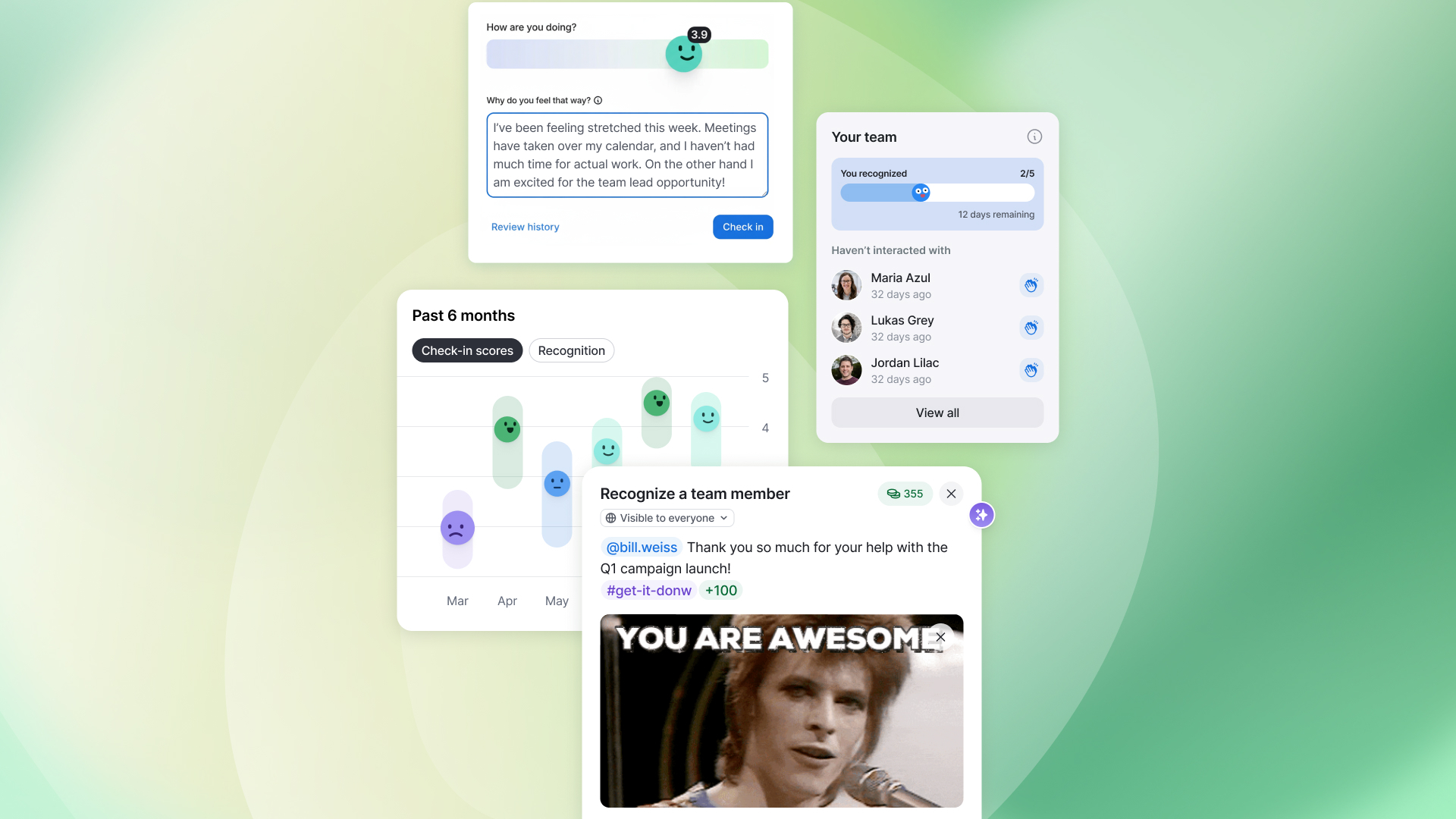Reframing Accountability in the Workplace

Accountability often conjures a negative connotation in our minds, and while that’s truly unfortunate, it’s understandable.
Have you ever worked in an environment with zero accountability, or conversely, been held accountable for the outcome of something you had very little power to influence?
Neither of these experiences are enjoyable, and in many cases they’re signs of organizational dysfunction; however, this is a common framework through which many of us experience accountability at work. With that in mind, it’s no wonder accountability earned such a sore spot in our collective psyche.
But what if there was a different framework through which we could view accountability — what if we could approach accountability as an exceptionally positive, healthy, and motivating influence that helps further both individual growth and organizational goals?
If that sounds too good to be true, let’s take five minutes to talk through it.
What is accountability?
According to The Cambridge Dictionary, to be accountable is to be “responsible for and having to explain your actions.”
Although that may help define the word, its broader meaning depends on context, and on who you ask. Jurgen Appelo wrote a great Forbes article on the shifting and somewhat nebulous definition of accountability, and its overlapping relationship with responsibility.
In the context of work, an employee’s accountability usually centers around the specific tasks or functions they’re expected to perform, a leader’s accountability for their team’s success, and an organization’s accountability to the community it serves.
Why is accountability important?
Accountability, or the lack thereof, can both have a meaningful impact on outcomes at work, and recent research corroborates this. As part of their annual Employee Engagement & Organizational Culture Report, our friends at TINYpulse found personal accountability in the workplace to be an increasingly powerful and important influence. To better understand that influence, let's take a moment to break it down.
There are a few common ways most people approach their relationships with personal accountability as it relates to a certain subject.
- Being held to accountability
- Accepting accountability
- Embracing accountability
Which of these relationships a person has with accountability at work often boils down to factors like organizational structure, management styles, and the individual’s locus of control.
Locus of control
An individual’s locus of control governs their perceived level of control in a given situation, and it's described as being either 'internal' or 'external.'

“If you have an internal locus of control, you think you’re in charge of your life. If you succeed, you take the credit and if you fail, you blame yourself. If you define yourself with an external locus of control, however, you believe other people, your environment or a higher power controls what happens," writes Ethan Hale in the Fast Company article “How Your Locus of Control Impacts Business Success”.
Most people don’t have an entirely internal or external locus of control, existing somewhere on a spectrum between the two. Where they sit on that spectrum can also change depending on the situation or context at hand.
As such, an individual’s locus of control can hold a great deal of influence over their relationship with accountability.
What does it mean to be held to accountability?
Being held to accountability is often the least desirable relationship a person can have with accountability, regardless of whether they’re on the ‘holding’ or ‘held’ side. As the phrasing implies, this is a subject or area that someone has not naturally accepted or embraced accountability towards, and as such, requires some external force to “hold” them accountable.
“Holding” or “being held to” are perhaps the most common relationships with accountability that we experience at work. Accountability often skews neutral — “I’m relying on you to finish this report on time” — to negative — “I was relying on you to finish this report on time.”
This "holding" approach may provide some motivation, but that motivation is generally focused around completing the task at hand and avoiding the application of additional pressure.
What does it mean to accept accountability?
While accepting accountability is a personal choice and requires less direct application of pressure by external forces, it’s still not often an entirely positive experience for either party.
When someone accepts accountability, they’re often doing so not through their own intrinsic desire, but through a combination of internal and external pressure.
At work, accepting accountability might look something like “My team is relying on me to finish this report on time.” That’s enough to push someone forward or to motivate them to complete a task, but not necessarily enough to inspire a great deal of discretionary effort.
Accepting, but not embracing accountability can also lead to a relationship where someone views their relationship with accountability as a burden to be taken on begrudgingly.
What does it mean to embrace accountability?
If personal accountability were shaped like a pyramid, embracing accountability would sit at the top. Anyone can be held to accountability by others. A smaller number of people will accept accountability, and even fewer still embrace it — but when somebody does approach their relationship with accountability from this perspective, it can have a transformative effect on their output.
At work, embracing accountability for the same initiative as above would look something like “I know my team can rely on me to finish this report on time.” Although that may seem like a subtle shift in language, the shift in perspective is significant.
Instead of being pushed continually by external forces or internal haranguing to finish the report on time, a person who embraces accountability sees the task at hand, recognizes their own aptitude and is intrinsically motivated to finish it. There’s no need for external forces, or even themselves to hold them to this goal because completing it is a welcome and foregone conclusion.

How can you help others to embrace accountability?
By its very nature, embracing accountability isn’t something you can ask, require, or coerce someone to do — but you can inspire this behavior by fostering a culture of accountability that supports and rewards it.
Encouraging employees to take responsibility for their decisions and actions, and to accept the associated outcomes, can result in extensive benefits for organizations. However, it is crucial that such circumstances take place in a supportive environment.
-Craig Dowden, Ph.D., in PeopleTalk
Below are a few environmental factors that can have an impact on that environment, and the team's relationship with accountability.
Purpose
For someone to fully embrace accountability for their role in an organization, it’s essential that they see the purpose behind it. Frequent, specific, and authentic recognition is one of the easiest ways to illuminate the purpose behind someone’s work. When someone knows exactly how much their colleagues, their organization, and the outside world values their work, they can see the purpose behind that work with greater clarity.
Autonomy
In practice, this means fostering an environment of employee autonomy — one where employees feel as though they have agency in their role, and the power to make a difference in the outcome.
Without a basic threshold level of autonomy, it’s nearly impossible to embrace accountability, because employees don’t have a meaningful enough impact on outcomes to do so.
Transparency and communication
Clearly and transparently communicating expectations allows everyone to know where they stand, and where their accountability might begin and end. Transparency is also a vital element of the trust required to support a strong working relationship, and that same trust is the foundation for embracing accountability in a role.
Psychological safety
In a study that included executives, managers, and employees from more than 500 U.S. companies, AMA Enterprise found that on average a quarter of workers seem to avoid responsibility on the job. What’s perhaps most interesting is that the study found that most employees recognized their responsibilities and the ways in which their work fits into the larger organizational picture.
As author Jennifer Jones explains:
...we know that ducking responsibility isn’t due to ignorance. So not wanting to be held accountable probably has more to do with holding onto one’s job. It’s the opposite of seeking success and achievement.
In order to waylay that apprehensiveness to speak up, accept, or embrace accountability, it’s crucial to foster a non-punitive environment of psychological safety focused on giving respectful consideration to ideas and viewing mishaps as learning opportunities.
In conclusion
Accountability is powerful — it can drive someone to do the best work of their career, or drive them away, depending on their relationship with it. By understanding the factors that influence that relationship, an organization can start to reframe accountability as an overwhelmingly positive element of its culture.
If you're ready to take the next step toward building an engaging organizational culture, check out our latest resource:







